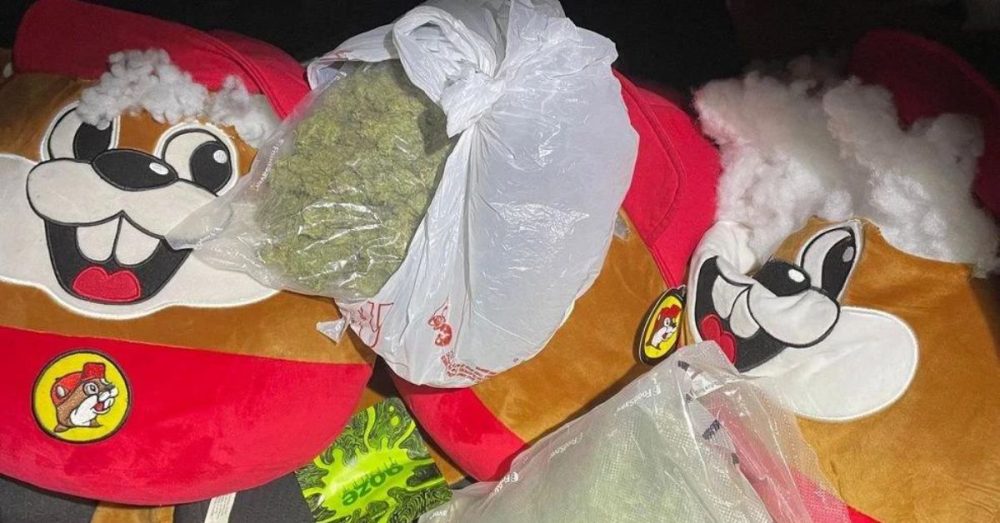In an unexpected twist during a routine traffic stop in Texas, authorities uncovered a stash of drugs hidden inside Buc-ee’s stuffed plushie toys.
The discovery was made in the early morning of July 31. It led to the arrest of 47-year-old Lugene Davis Jr. of San Antonio.
The incident unfolded when a deputy with the Fayette County Sheriff’s Office (FCSO) stopped Davis along I-10 for a minor traffic infraction just after 1 a.m. During the stop, the deputy reportedly detected the distinct odor of marijuana coming from Davis’ vehicle. Davis consented to a search, which led to the deputy discovering the unexpected and unusual drug stash.
According to a social media post from the sheriff’s office, the deputy discovered several Buc-ee’s plushies in the car’s back seat. Upon closer examination, the deputy found that the stuffed beavers had been tampered with and their seams re-stitched to conceal packages of drugs. The plush toys contained over two pounds of marijuana, in addition to ecstasy pills, officials reported.
The arrest took a concerning turn when Davis began complaining of chest pains shortly after the drugs were discovered. Emergency medical services were called to the scene, and Davis was transported to a nearby hospital for evaluation.
In Texas, possession of marijuana exceeding 4 ounces but less than 5 pounds is classified as a felony, carrying potential penalties of up to two years in prison and fines up to $10,000.
The discovery of ecstasy adds further legal complications for Davis, as both drugs are subject to strict state and federal regulations. Depending on the amount of ecstasy allegedly discovered in his possession, Davis could face anywhere from six months in prison to a life sentence and fines from $10,000 to $50,000 if convicted.
As previously reported by The Dallas Express, Dallas Police Chief Eddie Garcia expressed significant concern last week regarding a proposed charter amendment aimed at decriminalizing the possession of up to 4 ounces of marijuana.
At a recent Dallas City Council meeting, Garcia argued that the proposed change would adversely affect the city’s most vulnerable neighborhoods and potentially increase drug-related crimes.
According to the City of Dallas crime analytics dashboard, there have been 6,920 drug offenses committed this year as of August 12, marking an 8.2% bump compared to the same period in 2023.
Only around 3,000 DPD officers are currently on the street, even though a prior City analysis claims a force of roughly 4,000 is needed to properly maintain public safety.


